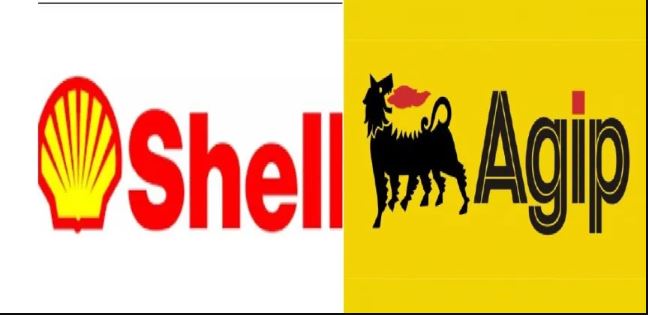
Land Grabbing Allegations: Advisory for Agip, Shell
The Federal Government’s investigation into accusations of land-grabbing by the Nigerian Agip Oil Company and Shell Petroleum Development Company in Bayelsa State brings to light critical Corporate Social Responsibility (CSR) implications. The allegations that these major oil companies seized land without providing adequate compensation to the host communities highlight significant concerns about the ethical conduct and social responsibility of these corporations.
The back story has it that the Federal Government has initiated an investigation into accusations of land-grabbing by oil-producing communities in Bayelsa State against the Nigerian Agip Oil Company and Shell Petroleum Development Company. The investigation team, led by Engr Kamoru Busari, Director of Upstream Department at the Federal Ministry of Petroleum Resources, included officials from the Office of the Surveyor General of the Federation, the Nigerian Police, and the Bayelsa State Government.
According to a statement released on Monday by the Ministry of Petroleum Resources in Abuja, the investigation was triggered by a petition from Agi Bestman, Coordinator of the Niger Delta MOU, Corporate Social Responsibilities (CSR), representing the aggrieved communities.
The petition alleges that Agip and Shell engaged in land-grabbing without providing adequate compensation, resulting in underpayment of tenancy rent.
From a CSR lens, the actions of Agip and Shell, as alleged, fall short of the expectations placed on multinational corporations operating in local communities, especially those that are vulnerable and heavily impacted by industrial activities. The core tenets of CSR emphasize the need for companies to engage responsibly with their host communities, ensuring that their operations do not exploit or harm local populations. The allegations of inadequate compensation and underpayment of tenancy rent suggest a failure to uphold these principles.
Corporate Social Responsibility is not just about compliance with legal requirements but also about going beyond them to foster positive relationships and mutual trust with stakeholders. For Agip and Shell, addressing these allegations transparently and effectively is crucial. It is not enough to merely engage in damage control; these companies must demonstrate a genuine commitment to the welfare of the communities in which they operate.
The investigation team’s visit to the affected communities and their interaction with traditional rulers, landlords, and residents underline the importance of direct engagement and listening to the grievances of those impacted. This approach aligns with the principles of CSR, which advocate for open dialogue and meaningful participation of local communities in decision-making processes that affect their lives and livelihoods.
The allegations also raise broader questions about the sustainability of the business practices of these oil companies. Sustainable development goals (SDGs), particularly those related to reducing inequalities (Goal 10) and ensuring sustainable economic growth (Goal 8), are at stake here. Companies must ensure that their operations contribute to the long-term development and prosperity of their host communities, rather than exacerbating existing challenges or creating new ones.
Moreover, these allegations could have far-reaching implications for the reputation and social license to operate of Agip and Shell. Companies perceived as exploiting local communities risk losing the trust and support of these communities, which can lead to conflicts and disruptions in operations. This, in turn, can affect their profitability and long-term sustainability.
To mitigate these risks and uphold their CSR commitments, Agip and Shell must take the following steps:
1. Conduct a Thorough Investigation and Provide Transparency: The companies should cooperate fully with the government’s investigation and provide transparent and verifiable information about their land acquisition practices and compensation processes.
2. Engage with Affected Communities: Meaningful engagement with the affected communities is essential. This involves not only listening to their grievances but also involving them in the resolution process and ensuring their concerns are adequately addressed.
3. Review and Improve Compensation Practices: If the allegations are found to be true, Agip and Shell must reassess their compensation practices and ensure fair and adequate compensation for all affected individuals and communities.
4. Strengthen CSR Initiatives: The companies should reinforce their CSR initiatives, focusing on sustainable development, community empowerment, and environmental stewardship. This includes investing in community development projects, education, healthcare, and infrastructure.
Honesty, the allegations against Agip and Shell underscore the need for robust and genuine CSR practices. These companies must take proactive steps to rectify any wrongdoings and ensure that their operations contribute positively to the well-being of their host communities. By doing so, they can rebuild trust, enhance their reputations, and support sustainable development in Nigeria. The role of the Federal Government and the investigative team in holding these companies accountable is commendable and sets a precedent for corporate responsibility in the country. For consultancy services and guidance on implementing effective CSR strategies, companies can engage with CSR Reporters to ensure their initiatives are impactful and aligned with global best practices.









